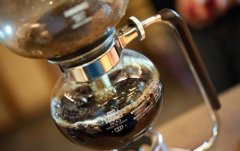Yemeni Coffee "full of Game" Coffee basic knowledge
Because the steep slopes, valleys and depressions that can be planted in the mountains are very narrow, coffee farmers adopt distributed cultivation and plant a few plants whenever there is a suitable place, regardless of wild forests, cliffs or barren valleys. Experts pointed out that the diversity of the planting environment and the diversity of microclimate have created the ever-changing aroma and acid of Yemeni coffee. Some people laugh that there are no two beans with the same taste in the same sack of Yemeni coffee, which can be called "game" boutique coffee.

This is because Yemeni coffee is scattered among cliffs, vertical valleys, depressions, fields, terraces, plateaus and mountains, and even the same varieties will give birth to different fragrant elves due to different microclimate and soil quality, not to mention the wide variety of Yemeni coffee. Seasoned Yemeni coffee farmers can tell the variety and flavor of coffee from which hills, steep slopes, terraces, villages or areas the coffee comes from. In contrast, the monotonous flavor created by soil and water can not be compared with the single landform planted on a large scale in Brazil on the same plain or hill.
Yemeni dry lack of water, coffee beans are also relatively small, bean color is light green or yellowish. After the farmers harvest the red fruit, they put it on the roof of the farmhouse and expose it to the sun for two to three weeks to let the coffee fruit dry and hard.
During this time, the pulp essence will seep into the beans in the pods to increase the flavor. For about three to six weeks, depending on the dry and hard condition of the fruit, farmers use a traditional grindstone to crush the hard pulp and pods and take out the coffee beans (Yemeni coffee is often damaged or missing, which is caused by the grindstone, in addition to its smaller grains). In addition, Yemeni beans are also harder and brittle than ordinary coffee beans, and the collision in the handling process will also cause bean body breakage or defects, so the work of picking beans before baking can not be omitted, be sure to pick out these broken beans, so as not to deteriorate and affect the flavor.
Important Notice :
前街咖啡 FrontStreet Coffee has moved to new addredd:
FrontStreet Coffee Address: 315,Donghua East Road,GuangZhou
Tel:020 38364473
- Prev

Arab wildness in the disappearance of Yemeni Coffee
Although Ethiopia is the birthplace of Arabica, the first coffee that Europeans drank from the end of the 17th century to the beginning of the 18th century came from Yemen. At that time, all African or Arabian coffee was exported from the port of Mocha, so that Mocha became synonymous with coffee, while Harald, the capital of the city walls, became a supporting role. However, three hundred years later, Yemeni coffee is no longer what it used to be.
- Next

Yemeni Coffee Sanani and Matari Coffee
Sanani: Sanani is a general term, which generally refers to the coffee production areas around the capital Sana'a. I have a deep affection for Sanani. Eighteen years ago, I first brewed deeply baked Sanani, and I felt a strong aroma and sweetness of sun fruit at the entrance. Because of this incredible flavor, high-quality beans have been crazy ever since. Sanani's heavy fruity aroma, which is very different from the aroma of Central and South American beans, is difficult to describe and can be classified as
Related
- Detailed explanation of Jadeite planting Land in Panamanian Jadeite Manor introduction to the grading system of Jadeite competitive bidding, Red bid, Green bid and Rose Summer
- Story of Coffee planting in Brenka region of Costa Rica Stonehenge Manor anaerobic heavy honey treatment of flavor mouth
- What's on the barrel of Blue Mountain Coffee beans?
- Can American coffee also pull flowers? How to use hot American style to pull out a good-looking pattern?
- Can you make a cold extract with coffee beans? What is the right proportion for cold-extracted coffee formula?
- Indonesian PWN Gold Mandrine Coffee Origin Features Flavor How to Chong? Mandolin coffee is American.
- A brief introduction to the flavor characteristics of Brazilian yellow bourbon coffee beans
- What is the effect of different water quality on the flavor of cold-extracted coffee? What kind of water is best for brewing coffee?
- Why do you think of Rose Summer whenever you mention Panamanian coffee?
- Introduction to the characteristics of authentic blue mountain coffee bean producing areas? What is the CIB Coffee Authority in Jamaica?

